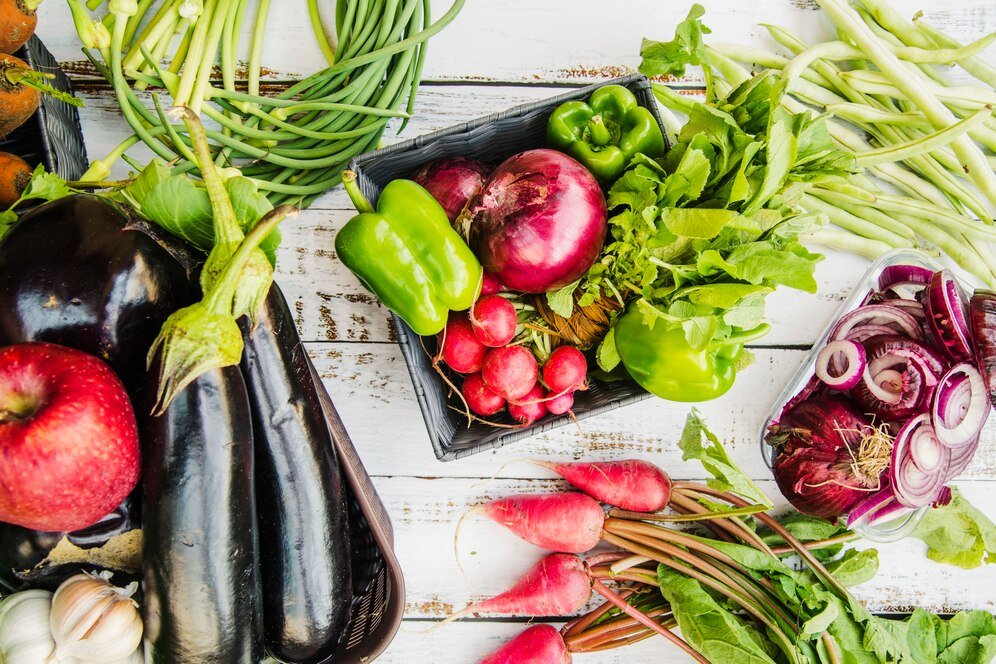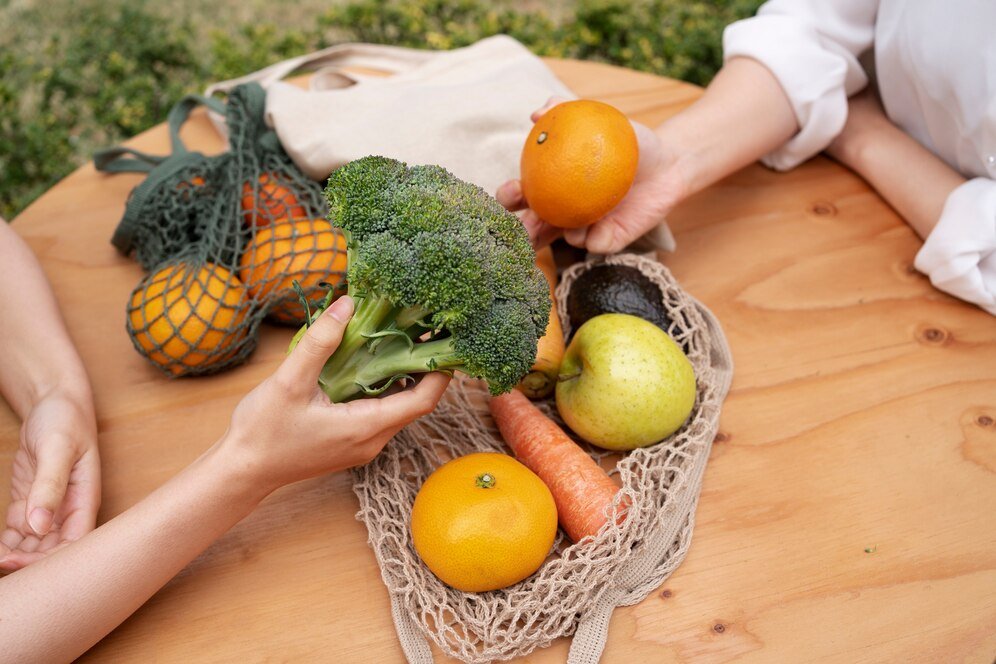As the world faces increasing environmental challenges, there has been a growing recognition of the need for more sustainable farming practices. Conventional farming methods, which often rely heavily on synthetic fertilizers, pesticides, and monoculture crops, have contributed to soil degradation, loss of biodiversity, and pollution. In contrast, eco-friendly farming practices focus on methods that are better for the planet, promote biodiversity, and ensure long-term food security.
Eco-friendly farming isn’t just a trend — it’s a necessary shift in how we produce food to protect the planet and ensure future generations have access to healthy, nutritious food. In this article, we’ll explore the importance of eco-friendly farming practices and why they are critical for the future of agriculture and food systems.
1. Protecting Soil Health and Preventing Erosion
Healthy soil is the foundation of successful farming, and yet it is often overlooked in conventional farming systems. Traditional farming methods, such as overuse of chemical fertilizers and the lack of crop rotation, can deplete the soil’s nutrients and lead to erosion. Without healthy soil, crops cannot grow effectively, which ultimately threatens food security.
Eco-friendly farming practices, such as crop rotation, no-till farming, and organic composting, help to preserve and enrich the soil. These practices improve soil structure, enhance its water retention capabilities, and promote a healthy microbial ecosystem that benefits plant growth. By focusing on soil health, eco-friendly farmers can ensure that the land remains productive and viable for generations to come.
2. Reducing the Use of Harmful Chemicals
One of the biggest challenges facing conventional farming is the overuse of chemical pesticides, herbicides, and synthetic fertilizers. These chemicals can contaminate soil and water, harm wildlife, and endanger human health. Additionally, pests and diseases can develop resistance to these chemicals, making them less effective over time.
Eco-friendly farming practices reduce or eliminate the use of synthetic chemicals by relying on natural alternatives. For example, farmers may use integrated pest management (IPM) techniques, which focus on biological control methods, such as introducing beneficial insects or using companion planting to naturally repel pests. Organic farming methods also emphasize the use of natural fertilizers, such as compost or animal manure, to nourish plants without resorting to harmful chemicals.
By reducing the reliance on toxic chemicals, eco-friendly farmers create a healthier environment for people, wildlife, and the entire ecosystem.
3. Promoting Biodiversity and Healthy Ecosystems
Biodiversity is vital for the health of the planet, and eco-friendly farming practices can help maintain or even increase biodiversity in agricultural landscapes. Traditional farming practices that rely on monoculture crops (growing the same crop over and over on the same land) can deplete the land’s diversity and make it more vulnerable to pests and diseases.
In contrast, eco-friendly farming encourages diversity through crop rotation, agroforestry, and intercropping. These practices not only help prevent soil depletion but also provide habitats for beneficial insects, birds, and other wildlife. By maintaining a healthy balance of species, eco-friendly farms support ecosystems that are more resilient to environmental changes, pests, and diseases.
4. Supporting Animal Welfare and Ethical Farming
Animal welfare is an important component of eco-friendly farming practices. Conventional factory farming often subjects animals to crowded, stressful, and inhumane conditions, with limited access to the outdoors or natural behaviors. This can result in poor animal health and lower-quality products.
Eco-friendly farmers typically prioritize the humane treatment of animals, offering them more space to roam, access to fresh pasture, and natural diets. Practices such as rotational grazing and small-scale, free-range farming systems not only improve animal welfare but also produce healthier, more ethically raised meat, dairy, and eggs.
By supporting ethical farming practices, consumers can feel confident that the animals raised for food are treated with care and respect.
5. Mitigating Climate Change
Agriculture is both a contributor to and a victim of climate change. Traditional farming practices, particularly the use of synthetic fertilizers and large-scale livestock production, contribute significantly to greenhouse gas emissions. On the other hand, eco-friendly farming has the potential to mitigate climate change by reducing carbon emissions and sequestering carbon in the soil.
Regenerative farming practices, such as agroecology and holistic grazing, help restore soil health and increase the amount of carbon that is stored in the earth. By using organic methods and reducing reliance on fossil fuels, eco-friendly farmers can lower their carbon footprint and contribute to the global fight against climate change. Sustainable agriculture also makes farms more resilient to extreme weather events, such as droughts and floods, that are becoming more common due to climate change.
6. Ensuring Food Security for Future Generations
As the global population continues to grow, food security will become an increasingly important issue. Traditional farming methods, while productive in the short term, often deplete the land and create long-term environmental challenges that can threaten future food production. In contrast, eco-friendly farming practices focus on sustainability and long-term productivity, ensuring that we can continue to produce enough food for future generations.
By adopting sustainable methods like agroforestry, regenerative grazing, and crop diversification, eco-friendly farmers create systems that can withstand environmental pressures and continue to provide abundant, nutritious food for years to come. Additionally, eco-friendly farming practices help build more resilient local food systems, which can protect communities from global supply chain disruptions and reduce dependence on industrial agriculture.
7. Healthier Food for Healthier People
Eco-friendly farming isn’t just good for the environment; it’s also better for human health. By avoiding the use of synthetic chemicals and prioritizing organic practices, eco-friendly farming produces food that is free from harmful pesticide residues and other chemicals. Organic fruits and vegetables, as well as pasture-raised animal products, tend to have higher nutrient densities and are often considered more flavorful than conventionally grown food.
In addition, eco-friendly farming promotes healthier soil, which in turn produces more nutritious crops. When the soil is nourished with organic matter and treated with care, it can support crops that are richer in vitamins, minerals, and antioxidants, offering a healthier alternative for consumers.
8. Eco-Friendly Farming and Its Impact on Local Communities
Beyond the environmental and health benefits, eco-friendly farming plays an important role in strengthening local communities. By supporting small-scale, family-owned farms that practice sustainable methods, consumers help create jobs, stimulate local economies, and encourage stronger community ties.
Local farmers who adopt eco-friendly practices are often more connected to their communities, participating in farmers’ markets, local food co-ops, and other initiatives that foster a sense of community and promote food education. Supporting these farmers helps ensure that communities have access to fresh, healthy food while also supporting a more resilient local economy.
Conclusion: The Future of Farming
Eco-friendly farming practices are not just a passing trend; they are essential for the health of the planet, our communities, and future generations. By prioritizing sustainability, biodiversity, animal welfare, and climate resilience, eco-friendly farmers are leading the way toward a more responsible and effective food system.
For consumers, choosing to support eco-friendly farms is a powerful way to contribute to positive environmental change. Whether it’s through shopping at farmers’ markets, supporting organic farms, or growing your own food, each choice makes a difference. By supporting these practices, we can help create a future where farming and food production are in harmony with nature, ensuring a healthier planet and a more sustainable food system for all.








